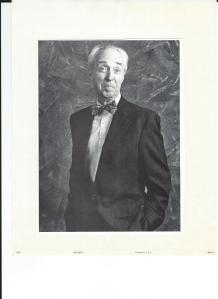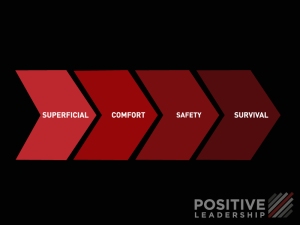I’ve been thinking lately about someone who made an impact on my life while I was in college: Bill Dizney.
Bill was an assistant dean of students at Northwest Missouri State University. He was a wiry, little man who always wore a bow tie that was as big as his smile and had contagious enthusiasm for life. Bill taught my friends and I a valuable lesson. He taught us the importance of expressing to others how much you care about them. When we would run into him he’d ask intently: “Who loves you baby?” We were forced to meekly and embarrassingly reply—“you do”. This was his way of reminding us that he cared, life was short and that it is okay to express to others our appreciation, joy and love for them. Not a romantic expression but a genuine expression of gratitude that someone has come into your life and made a difference.
I have a close friend who recently and suddenly lost his wife to a stroke. I surprised him by dropping in on him several weeks after the funeral to just be with him. I knew that the reality and loneliness from suddenly losing his wife of over 60 years was hitting him hard. It was a remarkable visit where he was especially attuned to the importance of expressing joy, love and gratitude to those who are most important. We shared stories, laughed, cried and told each other what an important difference we made in each other’s lives. Despite this being a sad meeting it was an authentic and meaningful moment that might have been difficult had Bill not taught me this important lesson.
Bill Dizney has been gone for many years but I’m grateful that he was a part of my journey and he made an important difference in my life. He helped me grow.
Who loves you baby? I do, Bill.










